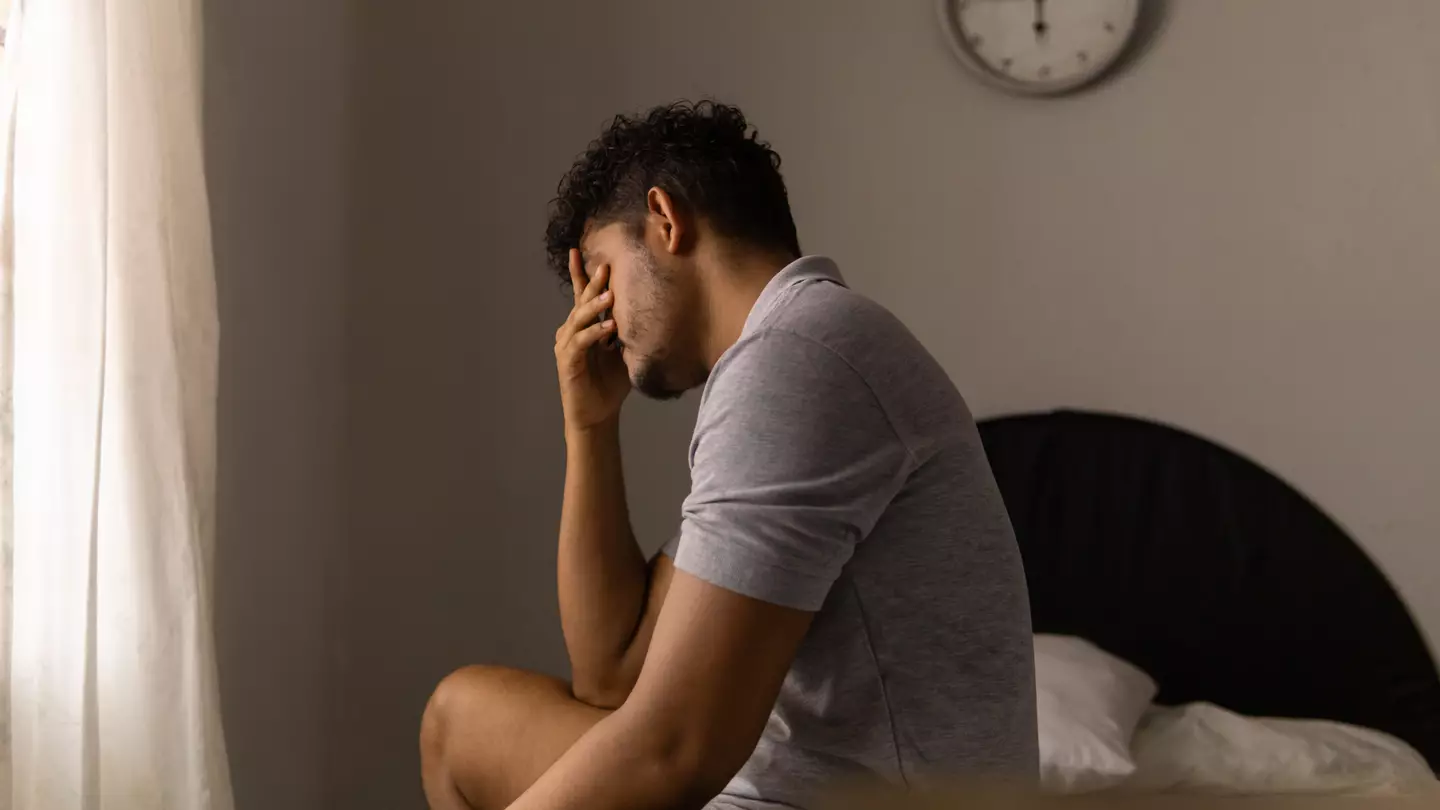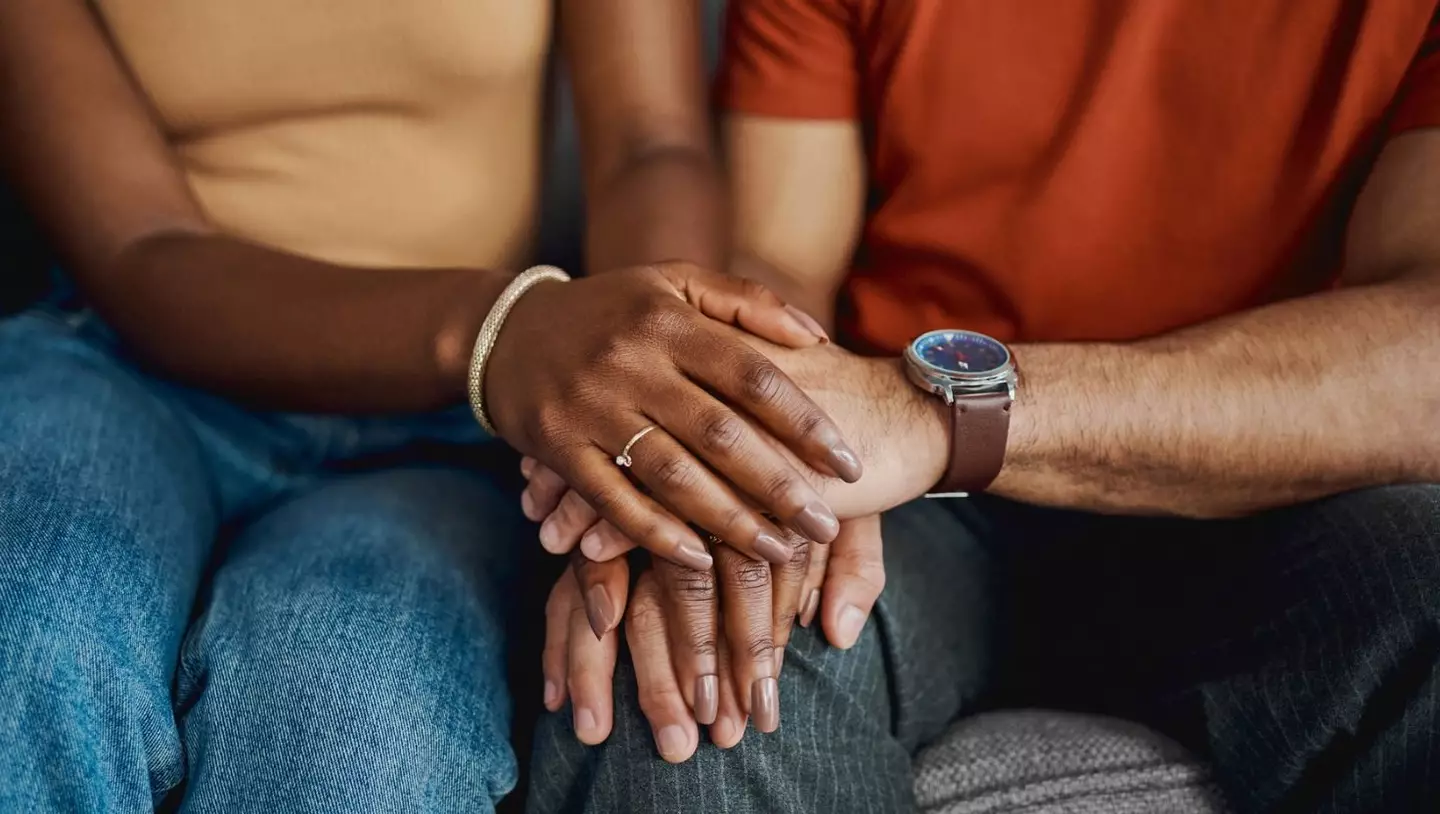
If you've ever felt tearful, sad, or overwhelmingly anxious after masturbating or having consensual sex, you're not alone.
Did you know 40 to 60 percent of the population has experienced that at least once, too?
Here’s the scenario: you pleasured yourself (or someone else did it for you), and you’ve instantly been hit with a deep case of the blues.
Does this sound like a familiar occurrence? If so, then you’ll be pleased to know it’s actually a totally normal experience and you’re definitely not alone.
Advert
In fact, scientists have coined the name ‘Postcoital Dysphoria’ to describe this phenomenon, but what is it?
Below, we've taken a deep dive into Postcoital Dysphoria (PCD), revealing what symptoms are often associated with it and how you can also combat feelings of distress when they arise.
.jpg)
What is Postcoital Dysphoria and its associated symptoms?
Psych Central outlines PDC as a health condition causing you to feel sad, anxious, agitated and/or irritable after sex.
These same feelings can also have a grip on you after solo play sessions, too.
According to experts, these feelings can also occur whether or not you orgasm by yourself or during sex with a partner.
Common symptoms associated with this dysphoria include bouts of depression after intimacy, crying and feelings of regret and guilt.
Shame, numbness and even panic attacks are also listed as symptoms, with Web MD also listing ‘feeling unsatisfied’ as a PDC indicator.
It should be noticed that postcoital depression is a term used to describe negative feelings after consensual sex and is not used to refer to sexual assault or forced sexual activity.
What causes Postcoital Dysphoria?
Unfortunately, there aren’t too many studies published about PDC’s causes.
However, mental health experts believe negative feelings after sex and/or masturbation could be related to factors such as having a history of sexual abuse in your childhood or early adult years and/or carrying feelings of resentment about sex.

Another reason experts have offered includes having mental health conditions, like anxiety, that can be linked to feelings of sadness or cause behavioral problems, as per Web MD.
A possible fourth link between having sex and suffering from a low mood could be that you’re experiencing difficulties in your relationship, writes Psych Central.
If your partner is the one facing bouts of PDC, then it’s advised that you don’t take it personally, as it doesn’t necessarily mean something is negatively impacting your sex life.
How can you manage Postcoital Dysphoria?
If you or someone you know frequently experience PDC, then it’s important to know it’s not always a cause for concern.
However, if you’re finding the negative feelings to be a little too much, then there are some approved ways to manage your symptoms.
These include communicating your thoughts with your partner, journaling about your situation and doing something fun and distracting in an effort to lift your mood.
Psych Central also advises that anyone who is worried about their PDC symptoms could speak to a therapist.
The publication also states that couple counselling may be a good idea if you think underlying problems in your relationship are causing your postcoital dysphoria.
Topics: Sex and Relationships, Health, World News, Science
